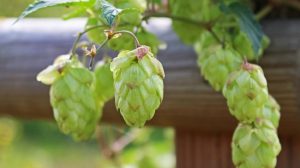Study shows that climate change would increasingly affect hop growers in the major European hop-growing regions in the coming years.

According to the researchers, both the quantity of hops harvested and their content of alpha acid, which is crucial for the bitter taste of beer, would be significantly lower on average than in the past.
The international team that conducted the study, which was published in the journal Nature Communications on Tuesday, October 10, 2023, has called for “immediate adaptation measures” and considers larger cultivation areas to be necessary.
The five cultivation areas studied includes three towns in southern Germany, as well as two regions in the Czech Republic and Slovenia.
The researchers expect one-third less alpha acid per hectare of cultivated areas from 2021 to 2050, when compared to yields from 1989 to 2018.
In the Hallertau, the most important European cultivation area, acid levels is expected to drop by almost 40 per cent.
The research team led by Martin Mozny of the Czech Academy of Sciences in Brno said significant declines were already observed in recent harvests.
The researchers attribute this in particular to increased temperatures and lower precipitation.
Although the study has been criticised in part by local hop experts, some have noticed the change in alpha acid.
“This is in line with our personal experience, said Erich Lehmair from the Association of German Hop Growers (HVG Germany),” said the study.
The managing director, Thomas Raiser of the world’s largest hop merchant, Barth-Haas, says that he firmly believed that new varieties and cultivation methods would make it possible to maintain the competitiveness of hop cultivation in southern Germany.
